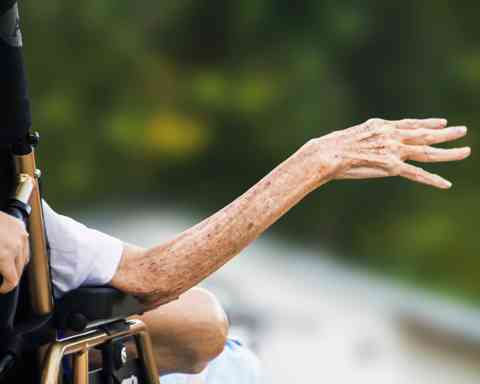Press Statement – Scotland Must Turn Off the Treacherous Path of Assisted Suicide
The Anscombe Bioethics Centre expresses great concern over the vote by members of the Scottish Parliament, by a majority of 14, in favour of the general principles of a Bill that would legalise physician-assisted suicide in Scotland.
MSPs have had only two weeks to examine the report of the Parliamentary Committee which considered the Bill. That Committee chose ‘to make no overall recommendation concerning the general principles of the Bill’ but ‘identified a number of areas which… would benefit from further consideration’ at Stage 2.
Among the areas of concern that the Committee identified in the Bill were:
- how it assesses capacity;
- whether it undermines the rights of disabled persons;
- whether it contains adequate oversight and review procedures;
- the meaning of ‘self-administration’; and
- the clear consensus of the medical profession in Scotland that, contrary to the current wording of the Bill, assisted dying if legal should be provided as a separate service.
The Committee also considered that there was a real risk that, if passed in its current form, the Bill might later expand as a result of legal challenge.
Eligibility in the Bill requires that the person has a ‘terminal illness’ but this is defined in very broad terms without any timeframe for the expectation of death. This is very similar to the way that the law was framed in Canada in 2016, which was used on people whose death only became ‘reasonably foreseeable’ when, under advice, they refused further medical treatment. The Scottish definition could similarly apply to people with chronic conditions who might otherwise have years of life ahead of them.
It seems that MSPs have been persuaded that the flaws in the Bill can all be addressed by amendments at Stage 2. It is extremely important the MSPs now scrutinise the details of the Bill, and weigh up whether, in practice, this legislation would be safe and secure. Is the wording of the Bill sufficient to escape the fate of other jurisdictions, where assisted suicide or euthanasia have expanded, first in practice and then in law? The reality in Canada is that some people seek and obtain death from doctors because they did not have access to adequate healthcare or social care or because they wrongly feel that they are a burden to others. This could easily become the reality in Scotland.
Professor Jones stated:
‘This is a very dangerous step towards a law which, if passed, would endanger the life and wellbeing of disabled people in Scotland. In this time of economic and political uncertainty, MSPs must consider the impact of this Bill on the vulnerable and, at the next Stage, take a step back from the brink. Having missed the devil in the general principles they need to recognise the devil in the details.’
END
Notes to Editors:
- Any part of the above can be quoted as coming from our Director, Professor David Albert Jones.
- For more information, please see the Centre’s full Guide on ‘Assisted Dying’ (euthanasia and assisted suicide) which includes a guide to the latest evidence concerning EAS internationally, the Centre’s series of briefing papers on EAS since 2021 of which the above paper is the latest, and videos on subjects relating to EAS.
- If the issues discussed here affect you or someone close to you, you can call Samaritans on 116 123 (UK and ROI), visit their website or contact them on: jo@samaritans.org
- If you are reporting or writing about a case of death by suicide, whether assisted or non-assisted, please consult the Samaritans’ media guidelines on how to do so responsibly.
- For more information on the Anscombe Bioethics Centre, see our website: www.bioethics.org.uk
- For interviews or comment, contact: media@bioethics.org.uk
Most recent
Press Release – Anscombe Centre Shines Light on Equality and Suicide Prevention Concerns Regarding ‘Assisted Dying’ Bill Ahead of Key Vote
04 June 2025
Ahead of the votes on Report Stage (continuing on 13 June 2025) and Third Reading (possibly 20 June ...
Press Release – Anscombe Centre Publishes Analysis of a Sinister Document About a Sinister Bill
23 May 2025
The Anscombe Bioethics Centre has published an analysis of the Government’s Impact Assessment of the...
Press Statement – Hospices to be Forced to Provide Assisted Suicide
19 May 2025
The Anscombe Centre’s statement on the rejection of an amendment to Kim Leadbeater MP’s ‘assisted dy...
Support Us
The Anscombe Bioethics Centre is supported by the Catholic Church in England and Wales, Scotland, and Ireland, but has also always relied on donations from generous individuals, friends and benefactors.



